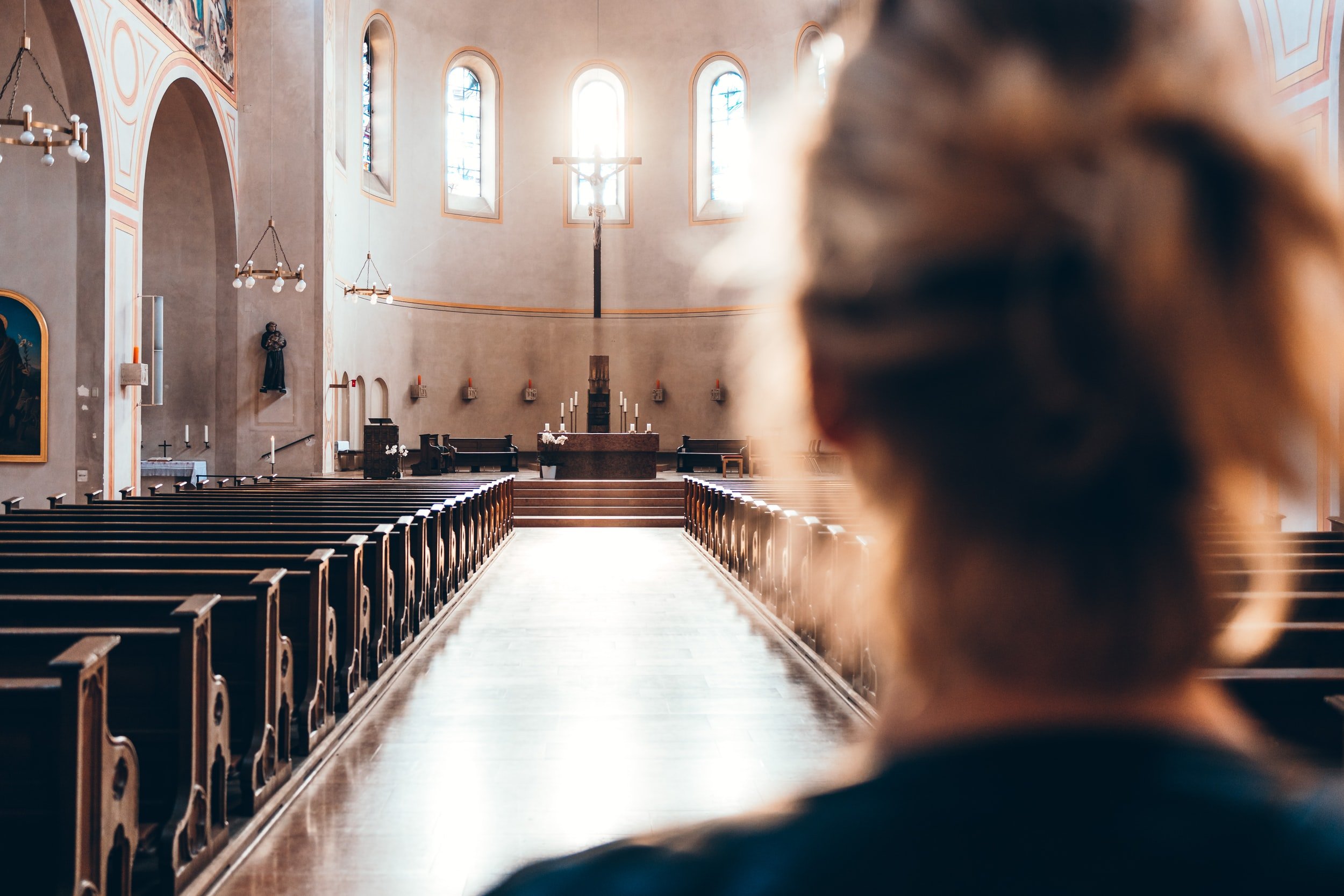What Is Faith Deconstruction?
Depending on what circles you run in, the word “deconstruction” may be terrifying, trendy, or a complete mystery. In evangelical and fundamental Christian circles, deconstruction is coming to be viewed as an attack on Christianity itself and therefore as something to be carefully controlled, if not condemned altogether. In progressive or non-institutionalized Christian circles, faith deconstruction is almost an unspoken litmus test for whether someone is actually a Christian. If you haven’t deconstructed, then do you even love God?! And in other circles, the word has never been used or mentioned and only elicits blank stares when inquired about. So what exactly is it, and why is it so polarizing?
Faith Deconstruction Defined
A relatively new idea that arose out of the world of textual criticism, the word “deconstruction” takes on different meanings depending on the field in which it’s being used. For our purposes—that is, regarding religious faith—we’ll define it as the taking apart of an idea, practice, tradition, belief, or system into smaller components in order to examine their foundation, truthfulness, usefulness, and impact. Or, as Rachel Held Evans wrote in her book Searching for Sunday: Loving, Leaving, and Finding the Church, it is taking a “massive inventory of [your] faith, tearing every doctrine from the cupboard and turning each one over in [your] hand” (p. 50).
Think of it like an older house—not one that’s completely dilapidated, but that definitely needs some fixing up. It has a good foundation and good bones, it just needs a bit of updating. But that requires money, effort, and time. It requires tearing out some walls, replacing broken cabinets, perhaps updating the wiring or plumbing. But the cost and time it takes to update it are worth it because the house is worth saving and the final product will be even better than the original.
Faith is actually much like that house. As we grow older, the components of our faith grow older, too—but some don’t age as well as others or have a shorter lifespan. A certain wall, which at one point may have been load-bearing and crucial to the structure of our faith, might have become pointless and therefore needs to be removed. Perhaps an entire room needs to be torn down so that it can make way for something more beautiful and true. But in order for the better things to come to fruition, we not only have to recognize what’s outdated, decayed, and useless, we also have to be willing to let go and say goodbye. And that can be painful.
It’s not exactly easy or fun to admit that something we once believed whole-heartedly and with every fiber of our being may not have encompassed the whole picture or, worse, was outright wrong. It might mean we need to apologize to someone for our previous dogmatic defense of an idea. It might mean we need to rethink an entire phase of our lives, how we perceive people, what we devote our time to, or what we denounce or uphold. It could even mean suddenly realizing that something we’ve done or thought for our whole lives is actually destructive to ourselves and others. And it will definitely involve in-between times—or liminal spaces—when we’ve let go of something but aren’t yet sure where to go next.
None of these experiences is something a sane person would happily jump into. It would be much easier if we could just be right all of the time in all things. But we can’t be. And despite the struggle, the journey and the outcome are 100% worth it. So if you’re in a tough phase right now, keep slogging. We’re right there with you, keeping our eyes on the beauty and freedom that are just around the corner.
Note: Deconstruction is not destruction, but rather the step that may precede destruction. Ultimately, a person engages in deconstruction in order to see what of their faith is worth keeping and what needs rebuilding. If they determine that nothing was worth salvaging—that they can no longer believe—they will ultimately choose to walk away, or “deconvert.” However, if they determine that something is worth salvaging, they will then begin reconstructing from that foundation, rebuilding a faith that feels more authentic to how they perceive God. Because the faith journey is so personal, the choice of what to do after deconstruction is up to the person and no one else.
The Necessity of Deconstructing Our Faith
You may be catching on to why we need deconstruction already. There are many reasons why it’s crucial, so let’s talk about just a few of them.
Even though the word is relatively new, the concept of breaking paradigms down so that we can rebuild better ones has actually existed as long as humans have. It’s something we do by nature as soon as we’re born (and it’s so complex, the vast field of developmental psychology is dedicated to understanding it). When we’re young, we construct simple ways of understanding the world—that is, taking in information, then categorizing and explaining it. But as we age and encounter more situations that don’t fit into those simple paradigms, we have to deconstruct them and replace parts or all of them with a new, more complex paradigm. Of course, these ways of perceiving the world have a multiplicity of influences, and there is no set number of times a person can or will adopt a new one. There are some paradigms that appear to be common across all cultures and locations, and some that do not. And it’s quite possible for a person to stop, for one reason in another, in one stage and never move out of it.
But lest we go way beyond the scope of this article, suffice it to say that deconstruction is extremely important for our development and growth. If we didn’t utilize it, we’d never move beyond, say, categorizing people as “mom” and “not mom.”
“Without the ability to deconstruct something that was previously useful in order to make room for new information, we would all be stuck with a simplistic, black-and-white, dualistic way of seeing the world.”
In addition, deconstruction is what helps us make room for and make sense of new information. When we’re young, our knowledge and experiences are limited, so the simple paradigms are all we need to explain and understand them. But as we experience and learn more, we come into contact with information that is completely outside of our paradigms or possibly even clashes with them. When that happens, we have to rethink everything we thought we knew and (hopefully) find a way to make it all make sense.
For example, a young child who grows up in a loving home with doting, kind parents will probably subconsciously believe that all people are good. Why would the child have any reason or cause to believe otherwise? All he or she has known is love, goodness, and warmth. But the second the child encounters or witnesses someone who is not so kind, the “all people are good” worldview is shattered. How is a child to make sense of this? Often they react by categorizing people as either all bad or all good. And that works for a while, until they encounter someone they previously thought was bad doing something good (or vice versa). Slowly, the paradigm must be rebuilt to reflect the reality that people can do both good and bad things and that some are more committed than others to doing good in the world.
As you can see, without the ability to deconstruct something that was previously useful in order to make room for new information, we would all be stuck with a simplistic, black-and-white, dualistic way of seeing the world. And that would only get us so far. The same is true for our faith. When we’re young, we believe whatever we’re taught about God, the earth, the afterlife, and human nature. And what we’re taught usually reflects our developmental stages—people don’t usually try to explain the doctrine of total depravity to a four-year-old, but they do tell them a basic version of the story of Adam and Eve. But as we age, we become capable of grasping more difficult concepts, and we also eventually become more independent in our thinking and will to question what we were taught. All of this is healthy and should be part of all of our faith journeys.
Why Faith Deconstruction Isn’t Bad (or Scary)
In many faith communities, “deconstruction” has become synonymous with “losing faith.” And that’s often for good reason. For a great number of people, their doubts and questions become a slippery slope toward the death of their faith. They are unable to find satisfactory answers to their difficult questions, thus concluding that if one foundational idea can’t be answered or explained, then the rest of it must also be bogus. And they “walk away,” often to never return again.
Thus it’s not at all surprising that the knee-jerk reaction by people of faith to the process of deconstruction is fear and condemnation. They don’t want their loved ones to walk away from what they are convinced is the truth and the only way to God. So questions become taboo—the enemy, even—and they double down on the claim that only they have the answers, only they have everything one needs to get to God. Logically, then, questioning what they teach, affirm, reject, and condemn means that you’re questioning God. Doubting becomes the ultimate no-no, the ultimate sin, the ultimate sign that one does not truly love God.
Want to learn more about how deconstruction can build your faith? Download our ebook Faith Deconstruction 101: How to Deconstruct Your Faith without Losing It by clicking here.
And while that reaction and mindset is understandable, it’s actually misguided because it doesn’t truly understand deconstruction, and it’s harmful because it’s based in fear. That fear says that because questions lead to the unknown, they are bad and must be vehemently discouraged. But that’s simply not true. It isn’t the doubting, questioning, and deconstructing that cause the death or loss of faith; it’s the reaction to it. Deconstruction is not a faith death sentence if we have a safe, nurturing environment in which to ask questions, have deep discussions, and be welcomed no matter what. If we have the kind of faith community that doesn’t reject us as heretics or run in fear from our doubts, we can emerge with a stronger faith than we ever had before. But if we have the opposite—a faith community that discourages and even stifles honesty, difficult questions, or going outside the norm—chances are that anyone who starts down the path of deconstruction will be shamed into a complete rejection of their faith.
But as we mentioned earlier, deconstruction does not have to mean destruction if you don’t want it to. Rather than being a slippery slope toward the death of faith, deconstruction is actually part of the cycle of spiritual renewal. And this cycle, like the cycle of the seasons, requires the death of the old before something better can germinate, take root, and grow in its place.
So the sooner we can embrace faith deconstruction as vital for our spiritual growth, the sooner we’ll be able to reject fear and begin exploring the depths of the mystery of faith.









If there was a poet laureate of the deconstruction community, it would be Mary Oliver.